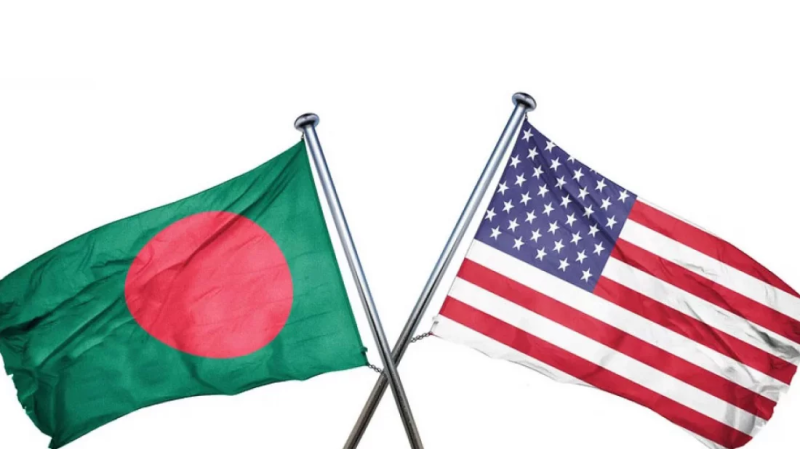- India Sees 9% Drop in Foreign Tourists as Bangladesh Visits Plunge |
- Dhaka Urges Restraint in Pakistan-Afghan War |
- Guterres Urges Action on Safe Migration Pact |
- OpenAI Raises $110B in Amazon-Led Funding |
- Puppet show enchants Children as Boi Mela comes alive on day 2 |
Experts Warn on US Security Demands in Trade Framework

During the recently concluded second round of tariff negotiations, the United States expressed interest in signing a framework agreement with Bangladesh that would include not only trade provisions but also address its strategic security concerns.
Energy Adviser Fouzul Kabir Khan shared the development on 13 July, noting that Commerce Adviser Sheikh Bashir Uddin, who led the delegation to Washington, would provide further details upon his return.
Experts believe the US’s security concerns are largely driven by Bangladesh’s growing engagement with China. They suggest Washington may push Dhaka to align more closely with its Indo-Pacific Strategy, a comprehensive initiative to counter China’s expanding influence in the region.
As part of the talks, the US raised concerns about the rising volume of Chinese investment in Bangladesh and the increasing transfer of ownership of local companies to Chinese entities. A senior official from the commerce ministry said the issue of Rules of Origin—requiring 40% local value addition to access the US market—was a major point, reflecting broader US efforts to reduce reliance on Chinese inputs.
M Humayun Kabir, former ambassador to the US and current president of a policy research institute, said the US is aiming to ensure Bangladesh does not lean too heavily towards China in its geopolitical and economic engagements. He added that the proposed framework agreement is part of a broader US attempt to deepen strategic ties with Bangladesh beyond trade.
Kabir stressed the importance of identifying Bangladesh’s own national interests before entering into any binding agreement. “We need to make it clear where we can cooperate and where we cannot. For instance, while we might refrain from deep military cooperation with China, cutting trade ties entirely is not feasible.”
He emphasised the need for a long-term, balanced national strategy, especially in the face of intensifying US-China rivalry and a weakened global trade governance system.
Security and defence analyst Major General (retd) ANM Muniruzzaman said the US’s core strategic concern globally is China, and in Bangladesh's case, issues like maritime security are likely to be a key focus in any proposed deal.
He warned that if Bangladesh refuses to meet US expectations on security cooperation, it is unlikely to receive any tariff concessions. Muniruzzaman criticised the lack of preparedness in Bangladesh’s negotiation approach, pointing out that crucial stakeholders from the private sector were not included.
He highlighted that countries like Vietnam were far better prepared, having completed their negotiations earlier and securing favourable tariff rates, reportedly around 20%. If Bangladesh ends up with higher tariffs, it risks losing competitiveness in key export sectors, particularly garments.
He also noted that India is likely to negotiate even lower tariff rates, further putting pressure on Bangladesh.
In conclusion, experts warned that unless Bangladesh improves its negotiation strategy and clarifies its national priorities, it risks being cornered into a disadvantageous agreement that serves external strategic interests more than its own.

